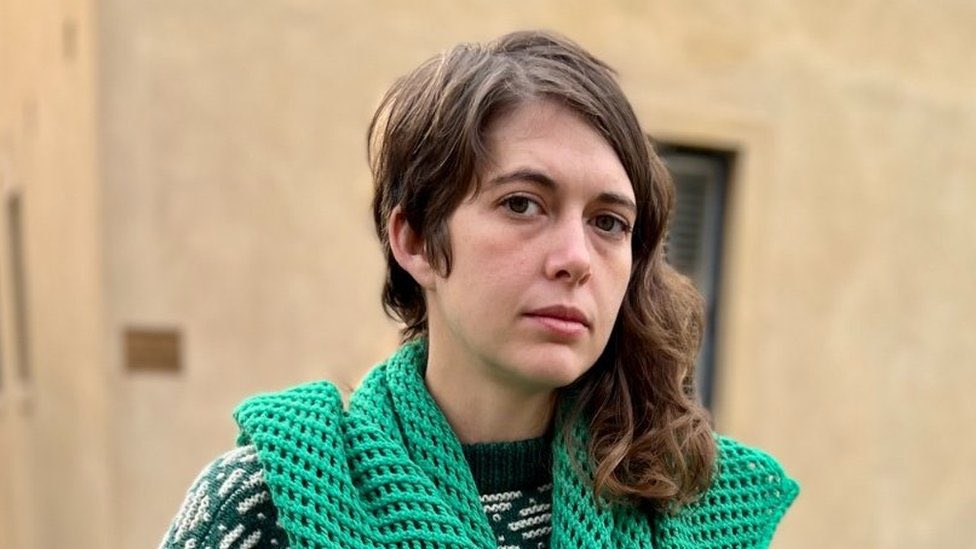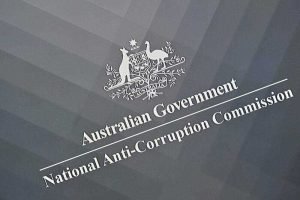The Shot
Arresting climate protesters at the end of the world

In April 1932, a man called Francis Edward de Groot was given the maximum penalty for his “actions offensive” that caused a dramatic disruption at the grand opening of the Sydney Harbour Bridge. De Groot, a disgruntled World War One veteran and active fascist, reared up on his horse in full military garb and slashed the ceremonial ribbon with his sword in front of a shocked crowd of 300,000 people and infamous NSW Premier Jack Lang. He was fined £5 pounds with £4 court costs.
On the morning of April 13 this year, climate protester Deanna ‘Violet’ Coco disrupted traffic for 28 minutes on the Sydney Harbour Bridge with four other protestors from activist group Fireproof Australia, in an attempt to raise awareness about the climate catastrophe enveloping all of us. While the others glued themselves to the bridge, Coco climbed atop a rented van, lit a flare, and resisted arrest when police arrived. She received a 15-month jail term with a non-parole period of eight months and no bail – the ‘maximum penalty’, legislated only recently by its current unelected Premier Dom Perrottet.
Not too far out from what looks to be a big New South Wales election, the NSW Premier was willing to throw his lot in with the court verdict, saying it was “pleasing to see”. He cautioned against any kind of protest that may “inconvenience people”. He confidently stated in the light of his new draconian law, “If protesters want to put our way of life at risk, then they should have the book thrown at them”.
Opposition leader Chris Minns conservatively echoed the sentiment of the major party line on Coco’s sentence: “You’re talking about a situation where mass protests are shutting down half the city”. When both sides of our two-party nation decide to descend on the people brave enough to resist humanity’s push into oblivion, what hope is there for any meaningful change? This “way of life” Coco disturbs pales in importance to the washed-out livelihoods of those in uninsurable flood plains and the burnt out remains of life in rural Australia.
In a country full of traffic jams in major cities, many Australians make their daily bread in the petroleum haze of ring roads and toll ways that strap across the suburban heartlands. In all the widenings and upgrades, bypasses and bridges, the single-purpose automobile takes us to our single-purpose employment. We eat out of single use plastics and listen to singularly manicured playlists on our Bluetooth personal devices, and most of us are never surprised to find out via red lines on maps that we may be half an hour late home from work again. We look at this climate crisis through a tinted windscreen with the aircon blasting, and if we want to, we can keep pretending this doesn’t exist for a little while longer. But not forever.
We’re stuck in traffic jams like before, but now the world is undeniably becoming increasingly unstable to live in. What we do is unsustainable, and people like Coco are unwilling to allow this status quo to keep dragging us towards the inevitable. What our society does to people that look to enact social change through protest, what the public is willing to accept, will reflect who we are as a nation and determine how we will meet this compounding challenge. Or, how it will come to meet us.
Coco’s unreasonable sentence sets a precedent for the harsh prosecution of protesters, bellowing a warning from the establishment. When we look at the excessive punishments being meted out to environmental protesters like Coco and others, it also sets a precedent to smother the rising concern that Australians have about climate inaction, and force the youth, who will ultimately suffer the worst of our negligence, to risk their futures fighting something that is absolute.
In the most recent Household, Income and Labour Dynamics in Australia (HILDA) survey, the mental health of Australians under thirty-five has reduced dramatically, tumbling down since the pandemic that followed an Armageddon-like bushfire experience, leaving an indelible mark on the country’s psyche. As the study reveals, the biggest toll is being felt by younger Australians disenfranchised with their position in this world when compared to others.
The outcry against Coco’s sentence has been loud and public, and condemned by justice reform organisations and legal professors alike. All the schoolkids understand what people like Violet Coco are trying to tell us, some of their parents do too, so when are the politicians that represent them going to hear this voice? Or are they going to keep throwing books at people like Coco until it is all too late?
After the fires that engulfed the eastern coast in 2020, as 54 Celsius wet bulb days become normal in India, and the rising oceans continue to swallow Pacific islands, the effects of runaway climate change are becoming increasingly absurd to deny – and yet these draconian anti-protest laws act as an inhibitor to the rapid change required to meet this accelerating threat. Now the permafrost is really starting to hiss methane in the thawing tundra, the desertification of nation-states changes populations, and devastating floods make areas uninhabitable. The physical toll of climate change is killing more and more people, uprooting swathes, and people are starting to take notice. Australia has suffered the gamut of environmental extremes caused by climate change; what is the mental toll on the young growing up in a world where preceding generations cast their futures into oblivion?
So now some Australians are stopping traffic, just as in de Groot’s day. The big polluters are granted offshore exploration licenses for oil and gas, dreaming of ribbon-cutting ceremonies and carrying along with a 1930s-vintage gusto in a 2020s hellscape. But this time, millions of Australians are starting to realise that their children are going to live precarious lives under the spectre of climate hardship, and more people are seeing big companies sweeping in behind favourable laws and bipartisan protection to take one last whack before it all falls apart. Coco represents a growing number of Australians that are willing to protest, and risk arrest to act as a driver for change in a stale political environment that crawls towards inadequate change.
As we start to wrap our heads around the reality of exponentiation in the months and years ahead, perhaps we will see the drastic sentences of protesters like Violet Coco as one of those moments in history where leaders have so conspicuously vacated their responsibility, bowing, as the curtain of the Anthropocene falls before them.






